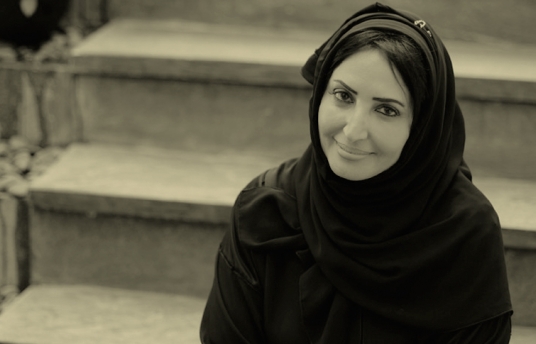People in Film: Wedad Al Kuwari
Feb 19, 2013

Wedad Al Kuwari is a renowned Qatari writer who has been called ‘the engineer of Gulf drama’. She has written several books and many short stories and radio programmes, and has received numerous awards for her work. She specialises in writing for children’s theatre and in the art of writing for television. DFI’s editorial team recently had the chance to ask Wedad a few questions regarding her work.
DFI: When did you start writing and what inspired you to take up the craft?
Al Kuwari: I started writing when I was in preparatory school. I wrote for magazines such as Al Jawhara, Aayam Al Orouba, Al Aahed and many others. Before finishing preparatory school I went to work for Qatar TV. I worked in the coordination and implementation department and then moved to start more creative work by collaborating with different writers in the drama and scripts department. Working in these unique environments allowed me to master writing, especially for TV. I started writing short stories when I was a student and won the first prize for my short stories many times.
DFI: Do you prefer using your talent for writing for TV or is your passion to create literary work?
Al Kuwari: I write for television of course, but in addition to this focus I have been writing for Zahrat Al Khaleej for fifteen years and for Alyoum, which is a prominent Saudi newspaper. In terms of my other creative work, I have written numerous books which have covered diverse subject matter.
DFI: Where do you see Qatar’s literary landscape in the next ten years?
Al Kuwari: After ten years of helping Northwestern University we will have a group of talented Qatari writers. Qatar is a small country but full of many talented individuals who don’t just specialise in writing. Qatar has a very skilled population in arts, photography, journalism and many other fields. In the next ten years, the nation will see a huge jump not just in financial resources but also in human resources that will spill over into creative fields such as writing and film.
DFI: Who is one of the biggest influences on you as a writer?
Al Kuwari: There is one writer who passed away named Osama Nour Okasha from Egypt. Because of his work, I got excited and loved writing, and I really felt that writing is a very difficult and challenging craft. The language he used was poetic and beautiful; it was one that engages readers and viewers on a visceral level. There are other screenwriters such as Waheed Hamid who is great at writing for films but for TV, Osama was the best.
DFI: Are you involved in any sort of mentorship of local writers?
Al Kuwari: No, although I did suggest to MBC that we should do a workshop for writers and start training the youth in the region. This idea consisted of teaching aspiring writers how to write professionally, develop their skills and create various scenes for film and television. The idea was implemented, although I was not directly involved. Columbian writer Gabriel García Márquez, (‘One Hundred Years of Solitude’), created a workshop which lasted for many years. Many attended and honed their skills thanks to the opportunities that the workshops provided. Now in Columbia they have skilled writers for the next 30 to 40 years who were trained under a very talented writer. This is the kind of culture we need to promote in Qatar.
DFI: Are you currently collaborating with any writers from the region?
Al Kuwari: I am not, but I hope to collaborate with writers and learn from them. No matter how old you get, you still can learn from someone else.
DFI: You have been entitled ‘the engineer of gulf drama’, how do you feel about that appointment?
Al Kuwari: I am happy that I have done something that has characterised me as a writer. Without exaggerating, most of the writers now are imitating the series that I wrote, for instance in the series ‘Youm Akhar’ a child died, other writers then went and mimicked this story. I started writing at the time when there was mockery when it comes to drama. I started writing and people began to know that drama had a value and an impact. Sometimes it affected people more than books, preaching and guidance. I am happy to have a name in the world of drama.